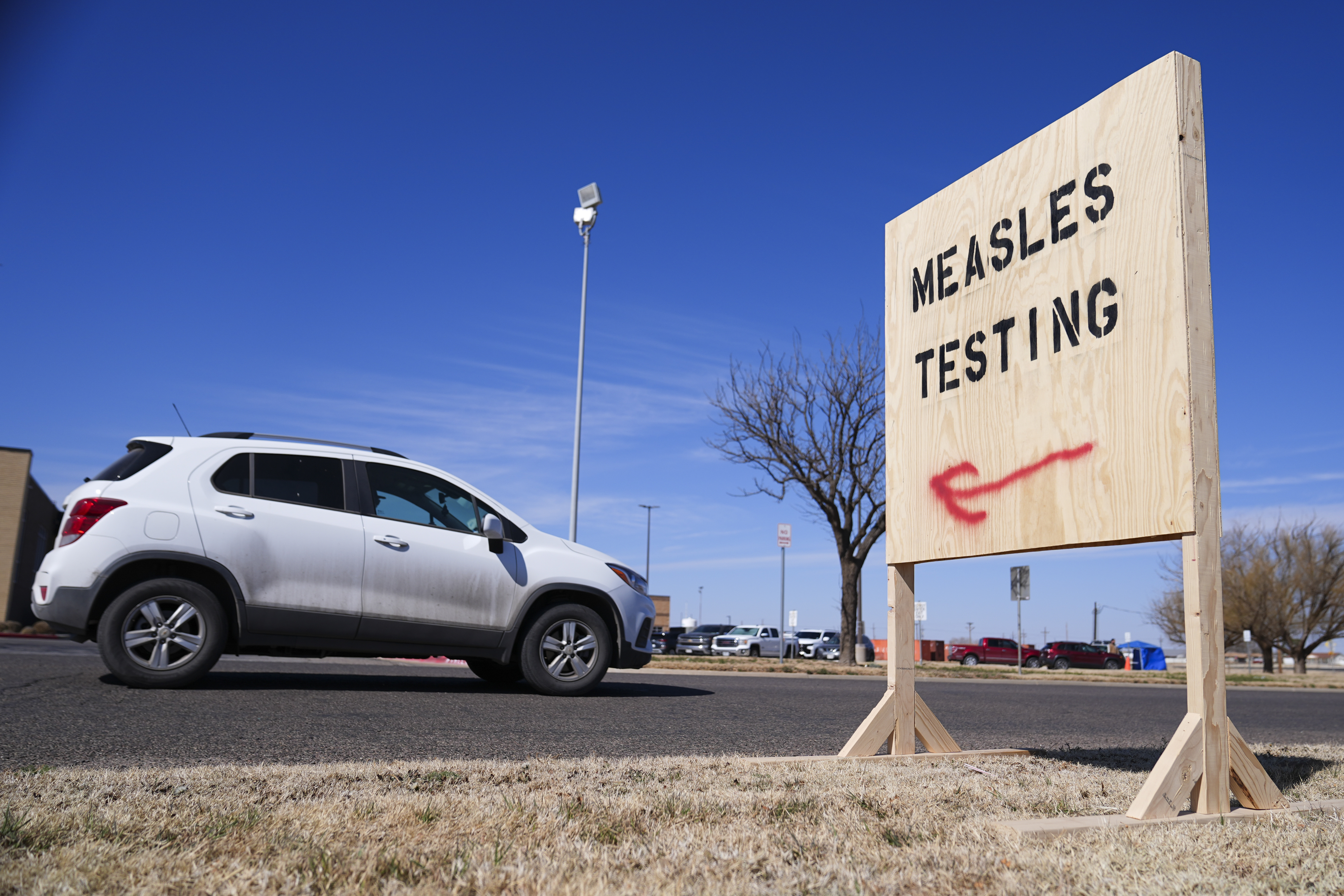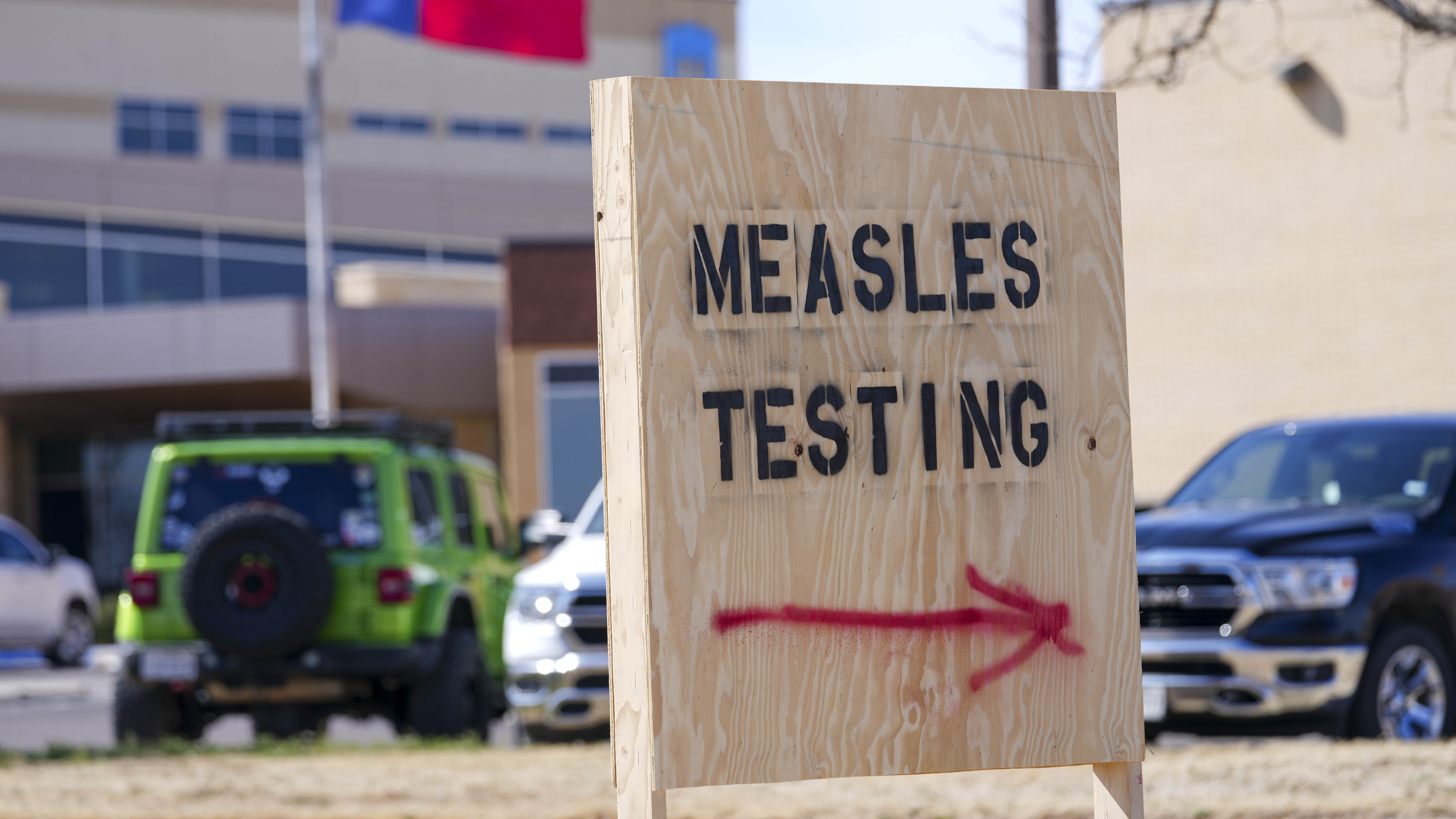Adults can suffer severe infection if they get the measles prompting concerns about whether some should get a booster, or revaccinated. Doctors also add, you may consider a booster if you have international travel plans. NBC 5 health reporter Bianca Castro took questions to Parkland Health’s Dr. Donna Persaud.
Measles is rarely seen in the United States, but Americans are growing more concerned about the preventable virus as cases continue to rise in rural West Texas.
This week, an unvaccinated child died in the West Texas outbreak, which involved more than 120 cases. The U.S. Centers for Disease Control and Prevention said the last confirmed measles death in the United States was in 2015.
Watch NBC6 free wherever you are
A confirmed measles case in Rockwall County is not believed to be connected to the West Texas outbreak, officials say. The Texas DPS says the person is an unvaccinated adult who traveled to Asia.
There are also nine measles cases in eastern New Mexico, but the state health department said there is no direct connection to the outbreak in Texas.
Get local news you need to know to start your day with NBC 6's News Headlines newsletter.
Measles
What to know about measles and how it spreads
It's a respiratory disease caused by one of the world's most contagious viruses. The virus is airborne and spreads easily when an infected person breathes, sneezes or coughs.
Measles is a respiratory virus that can survive in the air for up to two hours. Up to 9 out of 10 people who are susceptible will get the virus if exposed, according to the U.S. Centers for Disease Control and Prevention.
Measles first infects the respiratory tract, then spreads throughout the body, causing a high fever, runny nose, cough, red, watery eyes and a rash.
The rash generally appears three to five days after the first symptoms, beginning as flat red spots on the face and then spreading downward to the neck, trunk, arms, legs and feet. When the rash appears, the fever may spike over 104 degrees Fahrenheit, according to the CDC.
There's no specific treatment for measles, so doctors generally try to alleviate symptoms, prevent complications and keep patients comfortable.
Most kids will recover from measles if they get it, but infection can lead to dangerous complications like pneumonia, blindness, brain swelling, and death.
Adults can suffer severe infections if they get the measles.
There are a lot of questions about the efficacy of the measles vaccine and whether some should get a booster or be revaccinated.
NBC 5 asked Parkland Health's Dr. Donna Persaud for her take on measles vaccines and boosters, her answers appear below in italics.
Should adults get a measles booster?
"In general people who were born before 1957 and were children around then have had measles, it was very common and the vaccine was developed later in the late 1960s.
The first vaccine was not as effective and then from 1968 on we had an effective vaccine.
So if you know that you have had measles, you're sure, 'your mommy said so' and she'd taken you to the doctor, then you don't need the measles vaccine, because having had measles confirms lifelong immunity.
If you have documentation between 1968 and now you had two measles vaccines, one month apart you do not need a booster.
One dose gives you 95% protection, and two doses give you 97% [protection].
The vaccines are very safe, very effective. It's widely available and well-studied and so there's not an issue right now with supply."
Is there a test to tell me if I'm still immune if I did get the vaccine decades ago?
"There are tests that can be done by labs and the current recommendation is not to really use that in general to try to decide. You have to find a lab, etc. You're spending time waiting and then it has to be interpreted.
But people who are interested in that and depending on your particular health history, if you want to explore that option, you can always discuss that with your doctor."
If I'm planning to travel in the next few months, should I consider a measles vaccine?
"If you're traveling you should plan to get the measles vaccine, two of them, one month apart. If you are two weeks out definitely get one."
What about traveling with a child?
"There was a special recommendation for children. For children, we start the measles vaccine at one year of life, but if you are traveling with a child from six months to 11 months, they can get a measles vaccine to help because they're very vulnerable and they're very young.
What you need to know is if that is done, when they turn one -- which is the standard age for when we give the first vaccine -- they do need to get the vaccine at the age of one and the next one at [age] four."
Vaccination rates have declined nationwide since the COVID-19 pandemic, and most states are below the 95% vaccination threshold for kindergartners - the level needed to protect communities against measles outbreaks.
The Associates Press contributed to this report.



